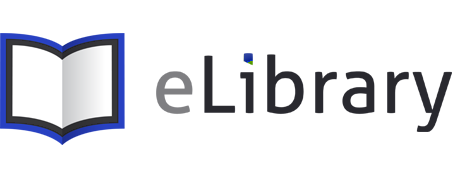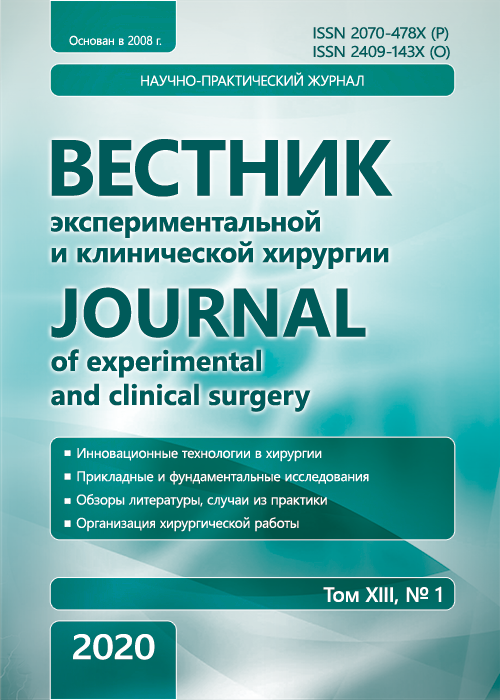Nikolai Alexandrovich VELYAMINOV – leib-medic, academician of medicine, Professor of the Imperial Military medical Academy (to the 165th of birthday)
- Authors: Andreev A.A.1, Ostroushko A.P.2
-
Affiliations:
- N.N. Burdenko Voronezh State Medical University.
- N.N. Burdenko Voronezh state medical University
- Issue: Vol 13, No 1 (2020)
- Pages: 72-72
- Section: Memorials
- URL: https://vestnik-surgery.com/journal/article/view/1359
- DOI: https://doi.org/10.18499/2070-478X-2020-13-1-72
- ID: 1359
Cite item
Full Text
Abstract
Nikolai Alexandrovich Velyaminov was born in 1855 in St. Petersburg. He studied at the gymnasiums of Wiesbaden and Warsaw. In 1872 he entered the Moscow University in physics and mathematics, and in 1873 transferred to the faculty of medicine. In 1877 he was sent to the army in the Caucasus. In 1878-1879, Nikolai Alexandrovich became ill with typhus, developing a chronic process in the lungs, which requires long-term treatment abroad. After recovery in the years 1880-1881 N. And. Velyaminov works in Central Asia as a surgeon of the Akhal-Teke expedition, develops a system of medical sorting and evacuation of the wounded, writes "Memories of the surgeon from the Akhal-Teke expedition." In 1883 he received the degree of doctor of medicine and worked as an assistant to Professor K. K. Reyer, lectured on operative surgery in Women's medical courses. In 1884 N. Ah. Velyaminov becomes an assistant to the chief physician and surgeon of the Holy cross community of sisters of mercy. In 1885 he founded the first in Russia authoritative scientific surgical journal "Surgical Bulletin". Since 1887 N. Ah. Velyaminov as a Junior doctor of the life guards of the Preobrazhensky regiment heads the surgical Department in Krasnoselsky hospital, since 1893 works as the Director of the Maximilian hospital in St. Petersburg, since 1894 – the senior doctor of the Semenovsky regiment, is appointed the life-physician and honorary surgeon of the Highest Court, and then the senior doctor of the Imperial headquarters. In 1889 he defended his doctoral thesis. In 1894 N. Ah. Velyaminov is elected Professor of the Military medical Academy. In 1896 he designs the device for the first time in St. Petersburg service of "Ambulance", organizing children's sanatoriums. In 1900, Velyaminov was elected an honorary member of the Royal medical College in London, the Chief Commissioner of the Russian red cross society for assistance to the sick and wounded in the far East. In 1905 N. Ah. Velyaminov was awarded the rank of privy Councilor, and in 1907 was awarded the order of St. Anne of the 1st degree. In the same years N. Ah. Velyaminov was the first in Russia to study occupational injuries, insurance of workers and organized the "Bureau of medical examination for workers" (1907). In 1910 – 1912 N. Ah. Velyaminova works as the head of the Imperial Military medical Academy in St. Petersburg. In 1913, the conference of the Military medical Academy elected him academician of medicine. At the beginning of World war I. Ah. Velyaminov took part in the work of the Main Directorate of the red cross, and from the end of August he was a surgeon-consultant at the Headquarters of the commander-in-Chief to inspect the surgical case in the army. By the beginning of 1917 N. Ah. Velyaminov held many positions: Director of the Mariinsky hospital for the poor, Alexandrinsky women's hospital and Maximilian hospital; Chairman of the Medical Commission for reception in the sanatorium "khalila", the Russian Society for the protection of public health, the Interdepartmental Commission for the revision of medical legislation; Vice-Chairman of the Committee of the Community of the Seaside sanatorium for chronically ill children; editor of the magazines "Surgical archive" and "Hygiene and sanitary Affairs"; inspector of the court medical unit; honorary consultant of the Alexander-Mariinsky hospital and hospital for incoming patients; consultant of the Royal office for the institutions of the Empress Maria Feodorovna, member of the Board of the Community. Kaufman red cross and the Medical Council of the interior Ministry. In 1919-1920 he headed the Department of surgical pathology with desmurgy at the Women's medical Institute. In March 1920, he was offered the post of Chairman of the Commission for the reform of medical education, from which N. Ah. Velyaminov refused. By this time the new government took away the Professor's apartment, and he found refuge in the utility room of the Petrograd hospital named after Peter the Great. N. And. Velyaminov – author of over 100 scientific medical works, including 8 monographs. He described thyrotoxic polyarthritis, gave the classification of diseases of the joints and thyroid gland, one of the first pointed to the importance of the endocrine glands in the development of surgical diseases, used phototherapy; opened the first Russian light therapy room. A lot of new N. And. Velyaminov contributed to the doctrine of surgical treatment of bone tuberculosis and abdominal surgery. April 9, 1920 N. Ah. Velyaminov died and was buried at the Volkov cemetery.
Full Text
Николай Александрович Вельяминов родился 15 февраля 1855 года в Санкт-Петербурге. Николай, переезжая с семьей, учился в гимназиях Висбадена, с 1871 года – Варшавы. В 1872 году его мать была назначена начальницей Николаевского института в Москве и он поступил в Московский университет на физико-математический, а в 1873 году перевелся на медицинский факультет.
После начала Русско-турецкой войны Н.А. Вельяминов досрочно сдает экзамены и в 1877 году отправляется младшим ординатором хирургического отделения Тифлисского военного госпиталя в действующую армию на Кавказ, а затем в Болгарию, где становится помощником выпускника Дерптского университета, хирурга-консультанта К.К. Рейера. В конце сентября 1878 года К.К. Рейер становится хирургом-консультантом Кавказской армии и назначает Н. Вельяминова одним из трех своих ассистентов. В конце 1878 года Николай Александрович заболевает тифом, потом у него развивается хронический процесс в легких, что приводит к необходимости его длительного лечения заграницей. Н. Вельяминов в это время посещает клиники Франции и Германии, перенимая их передовой опыт. После выздоровления в 1880-1881 годах Николай Александрович работает в Средней Азии в качестве хирурга Ахалтекинской экспедиции. Далее Н.А. Вельяминов возвращается в Петербург, где в 1883 году получает степень доктора медицины и продолжает работать ассистентом профессора К.К. Рейера, читает лекции по оперативной хирургии на Женских врачебных курсах.
В 1884 года Н.А. Вельяминов становится помощником главного врача и хирурга Крестовоздвиженской общины сестер милосердия. В 1885 году он основывает первый в России авторитетный научный хирургический журнал «Хирургический вестник». С 1887 года Н.А. Вельяминов в должности младшего врача лейб-гвардии Преображенского полка заведует хирургическим отделением в Красносельском госпитале, с 1893 года работает директором Максимилиановской лечебницы в Петербурге, с 1894 года – старшим врачом Семеновского полка. В том же году он назначается лейб-медиком и почетным хирургом Высочайшего Двора, а затем старшим врачом Императорской штаб-квартиры. В 1889 году он защищает докторскую диссертацию «О вылущении прямой кишки с предварительной и одновременной колотомией по Schinzinger Madelung'y». В сентябре 1894 года Н.А. Вельяминов командируется в Ливадию, где до последних минут жизни Александра III находится у его постели, а затем сопровождает императора Николая II и его семью в Москву и Петербург. В 1894 году Н.А. Вельяминов избирается профессором Военно-медицинской академии. В 1896 году Вельяминов проектирует устройство первой в Петербурге службы «Скорой помощи», организует детские санатории, продолжая начинания своего учителя К.К. Рейера. В 1898 года было учреждено Общество приморских санаториев для хронических больных детей, вице-председателем которого был избран Н.А. Вельяминов. При его участии в 1900 году в Виндаве (Вентспилс) открывается первый в России санаторий для больных костным туберкулезом.
В 1900 году Вельяминова избрали почетным членом Королевской медицинской коллегии в Лондоне, назначили Главным уполномоченным Российского общества Красного Креста по оказанию помощи больным и раненым на Дальнем Востоке. В 1910 году Н.А. Вельяминова избрали начальником Императорской Военно-медицинской академии в Петербурге. Но уже в декабре 1912 года, из-за разногласий с военным министром В.А. Сухомлиновым, его уволили из армии. Но тем не менее, в 1913 году конференция Военно-медицинской академии избрала его академиком медицины.
К началу 1917 года Н.А. Вельяминов занимал множество должностей: директора Мариинской больницы для бедных, Александринской женской больницы и Максимилиановской лечебницы; председателя Врачебной комиссии по приему в санатории «Халила», Русского Общества охранения народного здравия, Межведомственной комиссии по пересмотру врачебного законодательства; вице-председателя Комитета Общины Приморской санатории для хронически больных детей; редактора журналов «Хирургический архив» и «Гигиена и санитарное дело»; инспектора придворной медицинской части; почетного консультанта Александро-Мариинской больницы и лечебницы для приходящих больных; консультанта царской канцелярии по учреждениям императрицы Марии Федоровны, члена правления Общины им. Кауфмана Красного Креста и Медицинского Совета МВД.
9 апреля 1920 года Н.А. Вельяминов скончался после приступа стенокардии и был похоронен рядом с женой на Волковском православном кладбище. В знак признания его заслуг перед Отечеством, на его могиле поставили памятник – от редакции «Нового хирургического журнала».
About the authors
Alexander Alexeevich Andreev
N.N. Burdenko Voronezh State Medical University.
Author for correspondence.
Email: sugery@mail.ru
ORCID iD: 0000-0002-5242-6105
http://vrngmu.ru/academy/personnel/889/
Ph.D., Professor of the Department of General Surgery, Deputy Director of the Institute of Surgical Infections for Research of N.N. Burdenko Voronezh State Medical University.
Russian Federation, г. Воронеж, ул. Студенческая, 10Anton Petrovich Ostroushko
N.N. Burdenko Voronezh state medical University
Email: antonostroushko@yandex.ru
Ph. D., associate Professor of General surgery
Russian Federation, Voronezh, Russian FederationReferences
Supplementary files















